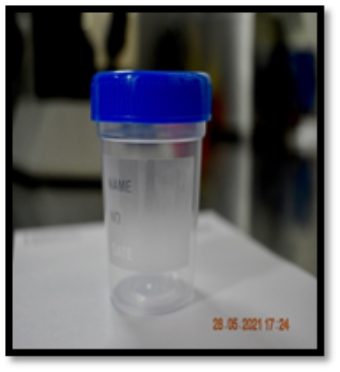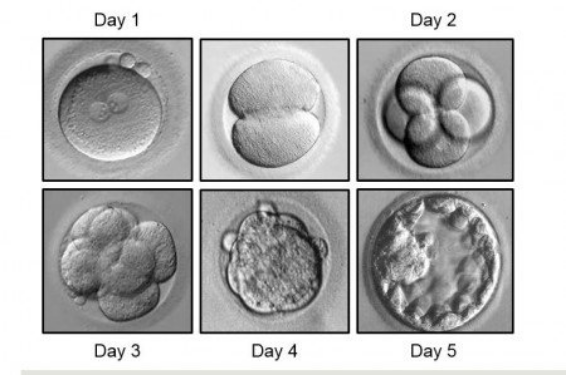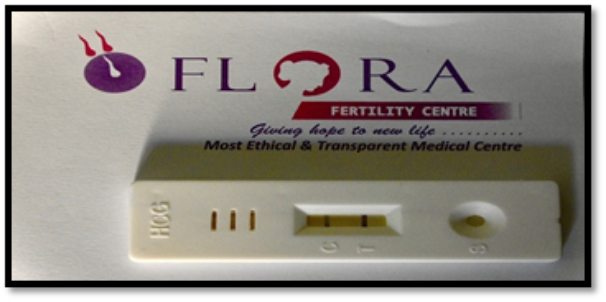WHAT IS IN VITRO FERTILIZATION?
- In vitro fertilization is a Part of ART.
- In Vitro Fertilization (IVF) is one of the most commonly utilized fertility treatments to treat infertility in couples.
- IVF technique uses a combination of medicines and surgical procedures that allows the sperm to fertilize an egg outside the body( in vitro) in laboratory.This fertilized egg is called an embryo, which is transferred into women’s uterus.
What are the chances of IVF Success?
Depends on various factors like:
- Age of patient
- Type of infertility
- Duration of infertility
- Ovarian reserve
- Type of procedure (Fresh, or frozen).
- Past history of IVF cycles failure
The steps for IVF treatment process include:
Before beginning IVF, procedure ,couple undergoes certain tests. IVF cycle start on 2nd / 3rd of menstrual and generally take 15 to 20 days.
- OVARIAN STIMULATION
- The stimulation process will start on the 2ND / 3RD day of menstrual cycle.
- Various protocols are available, based on case history and reports. It will be discussed & explained to couple and decided by doctor.
- According to ovarian reserve and various other factors HMG & R-FSH injection will be given for 8 to 12 days.
- Injection should be taken approximately at the same time every day to produce optimum quality and number of eggs in order to increase the chances of pregnancy.
- It is advisable to come to the hospital for injection.
- But if not feasible, training will be given to patient herself for subcutaneous preparation for self-medication or local clinical assistance can be taken.
- FOLLICULAR GROWTH MONITORING
Patient will be monitored for follicular growth by TVS:
1stVisit: On 2nd / 3rd day of menstrual period
2ndVisit: On 6th / 7th Day to see Recruitment of follicle
3rdVisit: On 10th /11th day to monitor follicle growth
- And after that decision will be taken for trigger
HCG injection /GnRH Agonist injection
- Once the follicles reach > 18= MM SIZE, HCG injection /GnRH agonist injection given to trigger the final maturation of the eggs and make them ready for collection, which will be scheduled 34 to 36 hours later is known as ovum pick up procedure.
- One back up semen sample is frozen before starting stimulation for future use, if needed.
- OVUM PICK-UP (EGG RETRIEVAL)
- In this procedure with the help of TVS & Ovum pick up needle follicular fluid is aspirated from the ovaries under general anesthesia.
- Follicular fluid meticulously screened by embryologist in adjacent IVF lab for oocytes.
- It takes 15 – 30 min depending on number of follicles.
- After 2-3 hours’patient can go at home and allow to do routine work.
- If the patient has vaginal spotting & mild anesthetic effect than need to take rest.
- Occasionally one could have some vaginal spotting and some abdominal discomfort but this settles in a one or two day.
- SPERM COLLECTION
- A fresh semen sample is collected on the day of ovum pick-up (egg collection) with abstinence of 3-5 days.
If a fresh sample cannot be produced on the same day or if the husband is not available on the day of egg collection, a previously frozen backup sample can also be used.

- FERTILIZATION
- Fertilization depends on maturity & quality of oocytes & Morphology of Sperms.
- Selection of the Methods for Fertilization: Conventional IVF & ICSI
- In Conventional IVF Fertilization, Sperm count & motility should be good as well as quality of oocyte should also be good.
- INTRACYTOPLAMIC SPERM INJECTION (ICSI) is preferred when sperm and/ or oocyte quality is compromised..Now a days ICSI is preferred in all IVF for better results.
- EMBRYO DEVELOPMENT
Day 0
- Fertilization of the egg and the sperm with help of conventional method or ICSI
Day 1:
- Pronuclei formation
- 2 cell formation (with or without fragmentation & uneven size cell due to quality of gametes)
Day 2:
- 4 cell formation (with or without fragmentation & uneven size cell due to quality of gametes)
Day 3:
- 8 cell formation (with or without fragmentation & uneven size cell due to quality of gametes)
Day 4:
- All cell get merged called compaction. (Morula)
DAY 5:
Blastocyst with expansion & cavity formation occurs.
- All the stages of embryo develop into a special incubator (co2/ trigas). Where the for growth and development is similar like mother’s womb.
- Mostly on day 3 &5, embryologist check quality of embryo and decision will be taken by clinician according to individual case whether freeze or transfer.

- Embryo transfer
- 2 types of transfer:
- Fresh transfer
- Frozen transfer
- 2 types of transfer:
- Pregnancy test
- 2 weeks after embryo transfer pregnancy can be confirmed by:
- Blood test (b HCG test is positive)
- Urine pregnancy test
- Trans-vaginal sonography to check (G-sac) depend on stage of embryo.
CONGRATULATIONS
Starting of parenthood

Precaution during IVF pregnancy
-
- Routine activities are allowed.
- No vigorous exercise like heavy lifting, cycling, jogging etc.
- Take Prescribed medicine by Gynecologist to reach full term pregnancy.
- Doctor must be consulted before taking any self-medication or any emergency
At Flora Fertility Center, we fulfill the parenthood dreams of infertile couples with various infertility treatment including IVF, ICSI with the help of advanced technology, personalized care and closed working chamber technique, which has significantly improved the outcome of IVF cycles.
